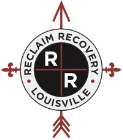Our Blogs

Inpatient vs. Outpatient Rehab in Kentucky: Pros, Cons, and Key Differences
Choosing the right path to recovery starts with understanding your options. One of the biggest decisions you or your loved one may face is whether to pursue inpatient or outpatient rehab. Both offer powerful tools for overcoming addiction—but the right choice depends on your unique needs, goals, and life circumstances.
At Reclaim Recovery Louisville, we help individuals throughout Kentucky find the level of care that sets them up for long-term success. This article will break down the key differences between inpatient and outpatient rehab in Kentucky, including pros, cons, and how to determine the best fit for you.
What Is Inpatient Rehab?
Inpatient rehab, sometimes called residential treatment, is a live-in program where individuals stay at the treatment facility full-time. This level of care is structured and immersive, providing 24/7 support.
Key Features:
Onsite living accommodations
Daily therapy sessions
Group and individual counseling
Mental health support
Routine structure and supervision
Inpatient rehab is best for people with moderate to severe addiction, co-occurring disorders, or unstable home environments that may interfere with recovery.
What Is Outpatient Rehab?
Outpatient rehab allows individuals to live at home or in a sober living environment while attending scheduled treatment sessions. At Reclaim Recovery, we offer a highly structured Intensive Outpatient Program (IOP) that meets several days per week.
Key Features:
3 to 5 weekly sessions (approx. 3 hours per session)
Flexible scheduling
Group and individual therapy
Focus on relapse prevention and life skills
Outpatient rehab is a good fit for people with a strong support system, mild-to-moderate substance use disorders, or those transitioning out of inpatient care.
Comparing Inpatient vs. Outpatient Rehab

Pros and Cons of Inpatient Rehab
Pros:
Total immersion in recovery
Removed from daily triggers and stressors
Around-the-clock support and accountability
Comprehensive treatment and mental health services
Cons:
Time away from work, school, or family
Higher cost (though often covered by Medicaid)
May feel restrictive for some individuals
Pros and Cons of Outpatient Rehab
Pros:
Flexibility to maintain work, school, or family life
Lower overall cost
Ideal for those transitioning from inpatient care
Continued integration with daily responsibilities
Cons:
More exposure to external triggers
Requires strong self-discipline and support system
Less intensive than residential care
Which Rehab Option Is Right for You?
There is no one-size-fits-all answer. Consider the following questions:
Have you tried outpatient care before without success?
Do you have a stable and supportive home environment?
Are you struggling with a mental health condition as well as addiction?
Can you commit to taking time away from daily responsibilities if needed?
At Reclaim Recovery Louisville, our team conducts personalized assessments to guide you toward the best level of care—whether that’s our residential program or our flexible IOP.
We also assist clients with Kentucky Medicaid applications, ensuring that financial concerns don’t block access to care.
Frequently Asked Questions (FAQ)
1. Is inpatient rehab more effective than outpatient rehab?
Both are effective when tailored to individual needs. Inpatient is best for severe cases; outpatient works well for moderate issues or after inpatient.
2. Can I switch from outpatient to inpatient if needed?
Yes. Treatment plans can evolve. Our team regularly reassesses and adjusts care levels based on progress and need.
3. Is outpatient rehab covered by Medicaid in Kentucky?
Yes. Reclaim Recovery accepts Kentucky Medicaid and helps clients with the enrollment process.
4. How long do I need to stay in rehab?
Treatment duration varies. Inpatient programs may last 30–90 days, while outpatient programs are often 8–12 weeks, depending on progress.
5. Can I work while attending outpatient rehab?
Absolutely. Outpatient programs are designed to accommodate work or school schedules.
6. Do I need detox before starting treatment?
Reclaim Recovery does not offer detox services but can refer clients to local partners for safe medical detox before starting treatment.
7. How do I get started?
Contact Reclaim Recovery Louisville for a confidential assessment and personalized guidance on your next step.


